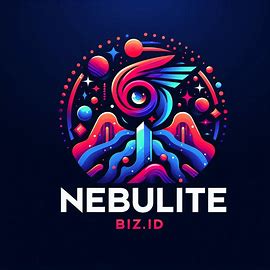
Game-Changing 21 Business Intelligence Tools For Modern Teams
In today’s data-driven world, businesses of all sizes are drowning in information. The challenge isn’t just collecting data, but understanding it. This is where business intelligence (BI) tools step in. They transform raw data into actionable insights. This article dives deep into 21 business intelligence tools that are changing the game for modern teams. We’ll explore their features, benefits, and how they can empower your organization to make smarter decisions.
The Rise of Business Intelligence
The evolution of business intelligence has been remarkable. Once the domain of large corporations, BI is now accessible to everyone. Cloud-based solutions, user-friendly interfaces, and the increasing availability of data have democratized access to powerful analytics. Teams can now leverage data to identify trends, optimize processes, and gain a competitive edge. This shift demands a new generation of business intelligence tools.
Key Benefits of Business Intelligence Tools
Implementing business intelligence tools offers a multitude of advantages. These include:
- Improved Decision-Making: Data-driven insights lead to more informed choices.
- Enhanced Efficiency: Automation and streamlined reporting save time and resources.
- Increased Revenue: Identify opportunities for growth and optimize sales strategies.
- Better Customer Understanding: Gain insights into customer behavior and preferences.
- Competitive Advantage: Stay ahead of the curve with data-backed strategies.
Top Business Intelligence Tools to Consider
This section provides an overview of 21 leading business intelligence tools. Each tool offers unique strengths and caters to different business needs. The selection criteria considered factors such as features, pricing, ease of use, and market reputation. This list is not exhaustive, but provides a strong starting point.
1. Microsoft Power BI
Microsoft Power BI is a widely-used business intelligence tool. It is known for its powerful data visualization capabilities and seamless integration with other Microsoft products. Power BI offers a user-friendly interface and a wide range of features, making it suitable for both beginners and experienced analysts. Its pricing is also competitive.
2. Tableau
Tableau is a popular choice for its interactive dashboards and data visualization. It excels at connecting to various data sources and creating visually appealing reports. Tableau’s drag-and-drop interface makes it easy to explore data and uncover insights. Tableau is a strong contender in the business intelligence landscape.
3. Qlik Sense
Qlik Sense offers a unique associative data modeling engine. It allows users to explore data in a more intuitive way. Qlik Sense is known for its data discovery capabilities and its ability to identify hidden relationships within data. It’s a robust business intelligence solution.
4. Sisense
Sisense is a platform designed for complex data analysis. It caters to businesses with large datasets and advanced analytical needs. Sisense offers features like in-database analytics and data modeling. It is a powerful business intelligence tool.
5. Domo
Domo is a cloud-based business intelligence platform. It focuses on real-time data and collaboration. Domo provides a centralized hub for all your data needs. It offers a mobile-first approach and easy-to-use dashboards.
6. Looker (Google Cloud)
Looker, now part of Google Cloud, is a powerful business intelligence and data analytics platform. It emphasizes data governance and a semantic layer. Looker enables organizations to build robust data models and create consistent reporting across teams.
7. SAP Analytics Cloud
SAP Analytics Cloud is a cloud-based solution. It combines business intelligence, planning, and predictive analytics. It’s designed for enterprise-level organizations with a focus on finance and operations. SAP Analytics Cloud provides comprehensive data analysis.
8. Oracle Analytics Cloud
Oracle Analytics Cloud is a comprehensive business intelligence platform. It offers a wide range of analytical capabilities. It integrates seamlessly with Oracle databases and other data sources. This tool is suitable for complex business requirements.
9. IBM Cognos Analytics
IBM Cognos Analytics is a well-established business intelligence tool. It offers a wide array of reporting and analytical features. It is known for its robust data governance capabilities. IBM Cognos Analytics caters to various enterprise needs.
10. Board International
Board International is a leading platform. It combines business intelligence, planning, and simulation. It allows organizations to create integrated plans and forecasts. Board International provides a holistic view of data.
11. Yellowfin BI
Yellowfin BI is focused on ease of use and data storytelling. It offers automated insights and interactive dashboards. Yellowfin BI emphasizes user engagement. This makes it a great choice for collaborative projects.
12. ThoughtSpot
ThoughtSpot focuses on search-driven analytics. It allows users to ask questions in plain language. ThoughtSpot delivers insights quickly and efficiently. This is a powerful business intelligence tool.
13. MicroStrategy
MicroStrategy is a comprehensive business intelligence platform. It offers advanced analytics and mobile BI capabilities. It is suitable for large enterprises. MicroStrategy provides a scalable solution.
14. Zoho Analytics
Zoho Analytics is a cost-effective business intelligence solution. It is designed for small and medium-sized businesses. Zoho Analytics offers a user-friendly interface. It integrates seamlessly with other Zoho products.
15. Birst (Informatica)
Birst, now part of Informatica, is a cloud-based business intelligence platform. It focuses on agile analytics and data discovery. Birst offers a collaborative environment. It is suitable for various business sizes.
16. Dundas BI
Dundas BI is a flexible and customizable business intelligence platform. It offers advanced data visualization and reporting. Dundas BI provides a high degree of control and customization. This is a great choice for tailored solutions.
17. Datapine
Datapine is a cloud-based business intelligence tool. It focuses on ease of use and self-service analytics. Datapine offers pre-built dashboards and integrations. It is suitable for quick data analysis.
18. Klipfolio
Klipfolio is a dashboarding and data visualization tool. It is known for its real-time data updates. Klipfolio is designed for businesses that require up-to-the-minute insights. This tool is ideal for dynamic dashboards.
19. InetSoft Style Intelligence
InetSoft Style Intelligence provides a robust business intelligence solution. It offers data visualization and reporting capabilities. InetSoft Style Intelligence is suitable for complex data needs.
20. GoodData
GoodData is a cloud-based business intelligence platform. It focuses on data governance and collaboration. GoodData offers a secure and scalable solution. It is suitable for enterprise-level requirements.
21. Pyramid Analytics
Pyramid Analytics is a comprehensive business intelligence platform. It offers a wide range of analytical features. It provides a user-friendly experience and supports collaborative data analysis. Pyramid Analytics is an excellent choice.
Choosing the Right Business Intelligence Tool
Selecting the right business intelligence tool depends on your specific needs. Consider these factors:
- Data Sources: Ensure the tool supports your data sources.
- Scalability: Choose a tool that can grow with your business.
- Ease of Use: Select a tool that fits your team’s skillset.
- Features: Look for features that meet your analytical needs.
- Pricing: Consider your budget and pricing models.
Evaluate each tool based on these criteria. This ensures you choose the best fit for your organization. A well-chosen tool will transform your data into a valuable asset.
Implementing Business Intelligence: Best Practices
Successful implementation requires careful planning and execution. Here are some best practices:
- Define Your Goals: Clearly define your business objectives.
- Clean Your Data: Ensure data quality and accuracy.
- Train Your Team: Provide adequate training and support.
- Start Small: Begin with a pilot project to test the waters.
- Monitor and Iterate: Continuously monitor and refine your approach.
Following these best practices improves your chances of success. A well-executed implementation will pay dividends. This will lead to better insights.
The Future of Business Intelligence
The future of business intelligence is bright. We can expect to see:
- Increased Automation: AI-powered insights and automated reporting.
- More User-Friendly Interfaces: Intuitive and easy-to-use tools.
- Greater Data Integration: Seamless integration with various data sources.
- Focus on Data Storytelling: Emphasis on communicating insights effectively.
Businesses must embrace these trends. They must adapt to stay competitive. The evolution of business intelligence will continue to transform how we make decisions.
Conclusion
Business intelligence tools are essential for modern teams. They empower organizations to make better decisions. This article has explored 21 game-changing tools. They provide insights into the world of data. By understanding the capabilities of these tools, you can unlock your data’s full potential. Embrace business intelligence. This can lead to greater success.
[See also: The Ultimate Guide to Data Visualization, How to Choose the Right BI Tool for Your Business, Top Data Analytics Trends for 2024]

